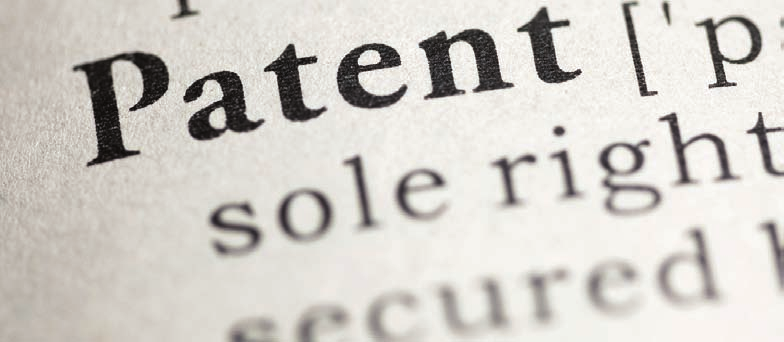
What’s in a Name?
What’s in a name? The often quoted and relied on phrase from William Shakespeare’s play ‘Romeo and Juliet’ does have a causal and innate connection with trade mark law. After all, a name is what sets one trade mark apart from another. But, what about a personal name- someone’s own name? Surely, trade mark law should permit a person to use his own name as part of his business.The answer is a resounding and thumping yes!
The definition of a ‘mark’ under the Trade Marks Act, 1999 (‘TM Act’) includes a name and, therefore, there is no disputing the fact that a personal name is capable of trade mark significance. Indeed, some of India’s most prominent and well-known brands are personal names- TATA, BIRLA, GODREJ, BAJAJ to name a few. There are, of course, a plethora of examples of lesser known brands which owe their origin to the personal name of its founder. It is also worth mentioning at this juncture that Section 35 of the TM Act provides a defence to a claim of infringement of trade mark. The Section provides that, inter alia, a registered proprietor may not interfere with any bona fide use by a person of his own name. The key phrase here is “bona fide” use.
Putting this in context, if a defendant is able to show that he (a) he (or his business) is historically known by his/ her personal nameand (b) legitimate use is being made of the said personal name, then no claim can be had against the said defendant. However, for example, if a defendant, not known as Birla or not having a personal name as Birla, adopts the mark Birla for his business, then, potentially, a claim can be had against such adoption.
This aspect of trade mark law becomes more interesting when the same intersects with another facet of trade mark law- celebrity personality rights. Personality rights, loosely defined, is a right of a person to his/ her own personality. Amongst other things, personality rights ensure that a person is in control of the exploitation or use of their persona or image or voice etc. In the context of trade mark law, celebrity personality rights probably have higher relevance. It is common knowledge that brands, across the world, use celebrities as brand ambassadors. Such brand ambassadorships are governed by written agreements, entered into between the celebrity and the brand owner. But, how does celebrity personality rights and the right to use ones personal name intersect?
Let’s take the recent case of Gautam Gambhir as an example. Everyone, in the cricket world, immediately, and perhaps unquestioningly, associates the name Gautam Gambhir with an international level Indian cricketer. That, of course, does not mean that there aren’t common Indian folks sharing the same name. That is precisely what Gautam Gambhir (the cricketer) found out. Gautam Gambhir (the cricketer) recently sued an entity that was running restaurants using the name “By Gautam Gambhir”. Gautam Gambhir (the cricketer) alleged that he had nothing to do with these restaurants and that use of the said name would cause confusion as regards the cricketer’s association with the restaurants; when there was no such association. The defendant was running different restaurants under the names ‘Blu Wavs’, ‘Play Reloaded’, ‘Ghungroo’ and ‘Hawalat’ and was using the phrase ‘By Gautam Gambhir’ along with these names. The defendant averred that the restaurants were being run by the owner, who was also named Gautam Gambhir and that the said restaurants had become famous and, in turn, Gautam Gambhir (the restaurateur) had also become famous. The learned Single Judge dismissed Gautam Gambhir’s (the cricketer) claims by holding that the defendant, also known as Gautam Gambhir, had every right to use his own name, thereby upholding the law laid down in Section 35 of the TM Act. Clearly, the decisive factor was that the Gautam Gambhir (the restaurateur) was making bona fide use of his personal name and, therefore, exempt from any liability and wrong-doing under the TM Act. In another case, in the context of domain names, Armani, the famous fashion label, was unable to succeed in seeking the transfer of the domain
There have, on the other end of the spectrum, been cases where a celebrity has been able to enforce their celebrity personality rights against a dishonest adoption and use (of their name or likeness) by a defendant. In 1998, Bajaj Electricals were successful in injuncting the defendant firm, whose partner was a Mr. Surender Bajaj, from using the mark BAJAJ. Similarly, Mr. Arun Jaitley was successful against a defendant who had registered the domain name
The above examples, with opposing results, clearly shows that merely because a person may be a celebrity, it does not automatically mean that they are entitled to stop every single person/ entity from using a name identical to their own name. The trade mark law very clearly carves out an exception, which is subject to the rider of showing bona fide use. Potentially, therefore, if a person is given the name ‘Virat’ at birth, and his family name is Kohli; nothing prevents him from making bona fide use of his name- ‘Virat Kohli’ for his business. The key test is for the celebrity to prove that the defendant, in using a name identical to the celebrity’s name, is seeking to identify or relate his business with the celebrity. If the celebrity is unable to show that the defendant is trying to mislead consumers into thinking that there is some nexus between the two, then the defendant’s use of a name identical to that of the celebrity is lawful.
Historically speaking, there have been more cases of blatant misuse of a celebrity’s personality rights when compared to a situation where celebrity personality rights intersects with Section 35 of the TM Act. In the latter scenario, as evident from above, it is not always easy going for a celebrity and a positive outcome can never be guaranteed. From an IP practitioner’s point of view, it is indeed heartening to note that Courts do not and will not get swayed by the celebrity status of a plaintiff.
Recent Posts

Condition Precedent and Condition Subsequent under the Indian Contract Act, 1872
Jan 2019

Conceptual Similarity of Trade Marks: The Indian Position
Nov 2018

Decoding the ‘Myth’ behind the 2-Part Claim Drafting Format in the context of the Koniklijke Philips’ Case
Oct 2018